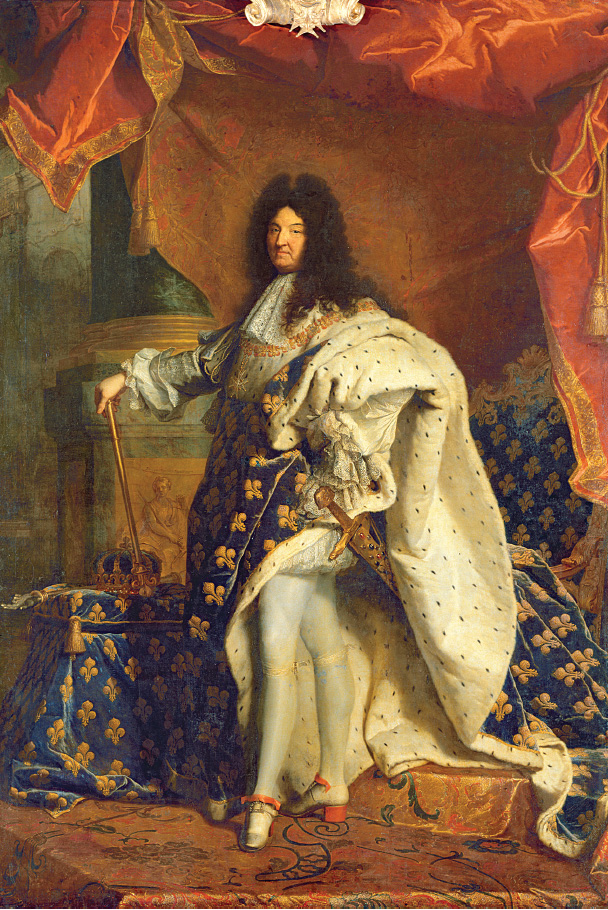Louis XIV and Absolutism
In the reign of Louis XIV (r. 1643–
In addition to parading his power before the court, Louis worked very hard at the business of governing. He ruled his realm through several councils of state and insisted on taking a personal role in many of their decisions. He selected councilors from the recently ennobled or the upper middle class because he believed “that the public should know, from the rank of those whom I chose to serve me, that I had no intention of sharing power with them.”3

CONNECTIONS: How does this representation of royal power compare with the images of Peter the Great and Charles I? Which do you find the most impressive, and why?
Although personally tolerant, Louis hated division within the realm and insisted that religious unity was essential to his royal dignity and to the security of the state. He thus pursued the policy of Protestant repression launched by Richelieu. In 1685, Louis revoked the Edict of Nantes.
Despite his claims to absolute authority, multiple constraints existed on Louis’s power. As a representative of divine power, he was obliged to rule in a manner consistent with virtue and benevolence. He had to uphold the laws issued by his royal predecessors. He also relied on the collaboration of nobles. Without their cooperation, it would have been impossible to extend his power throughout France or wage his many foreign wars. Louis’s need to elicit noble cooperation led him to revolutionize court life at his spectacular palace at Versailles.